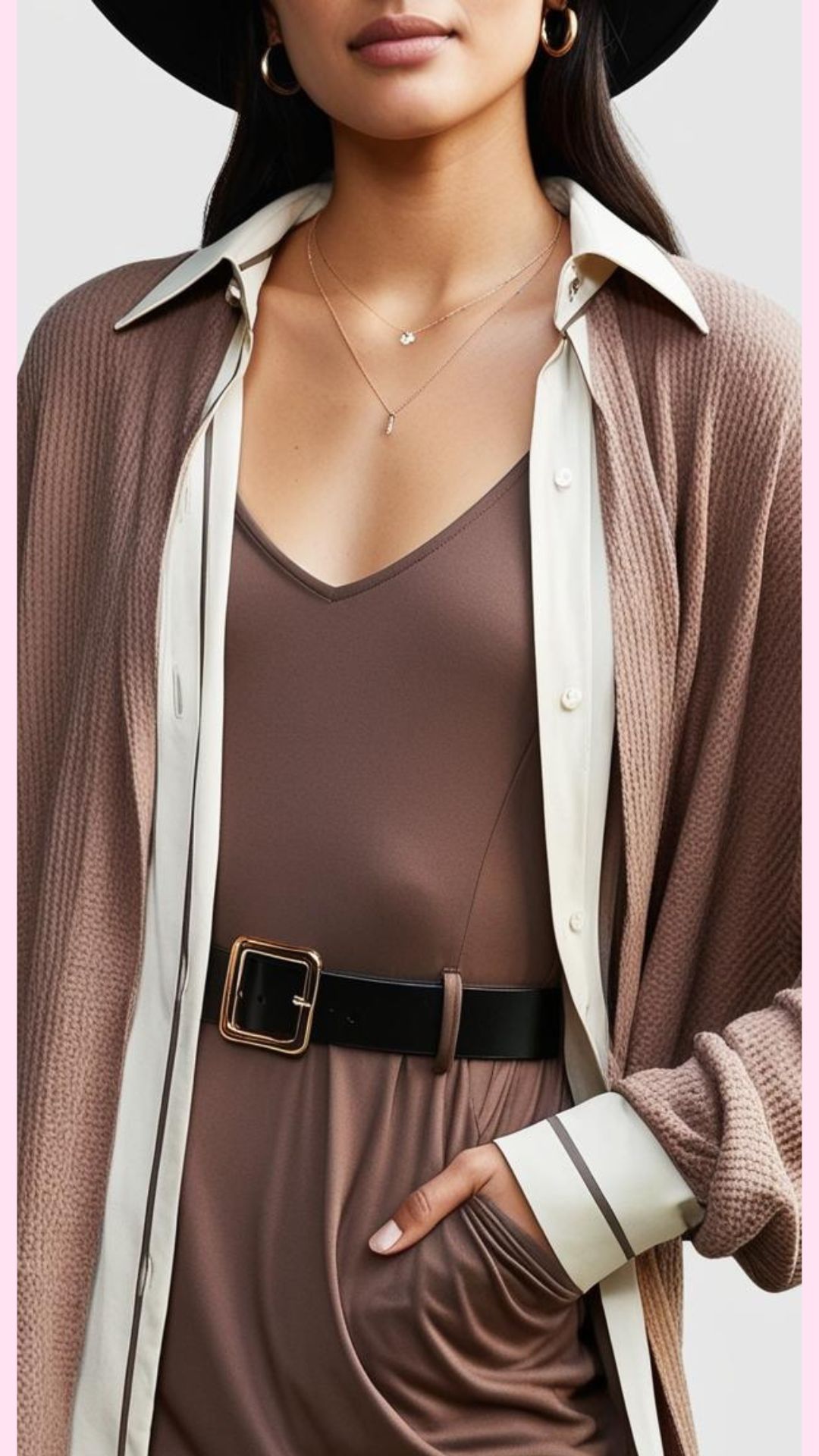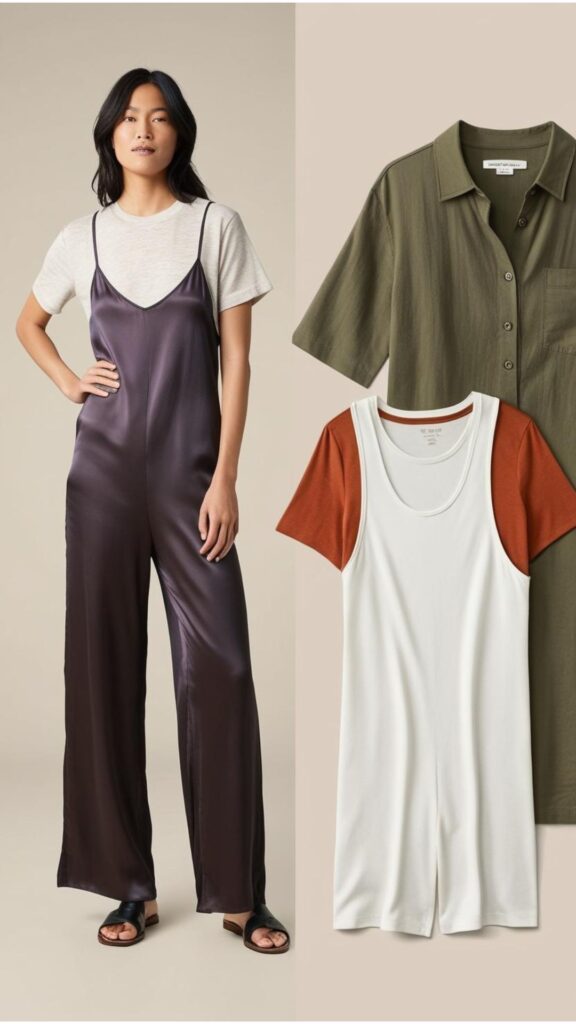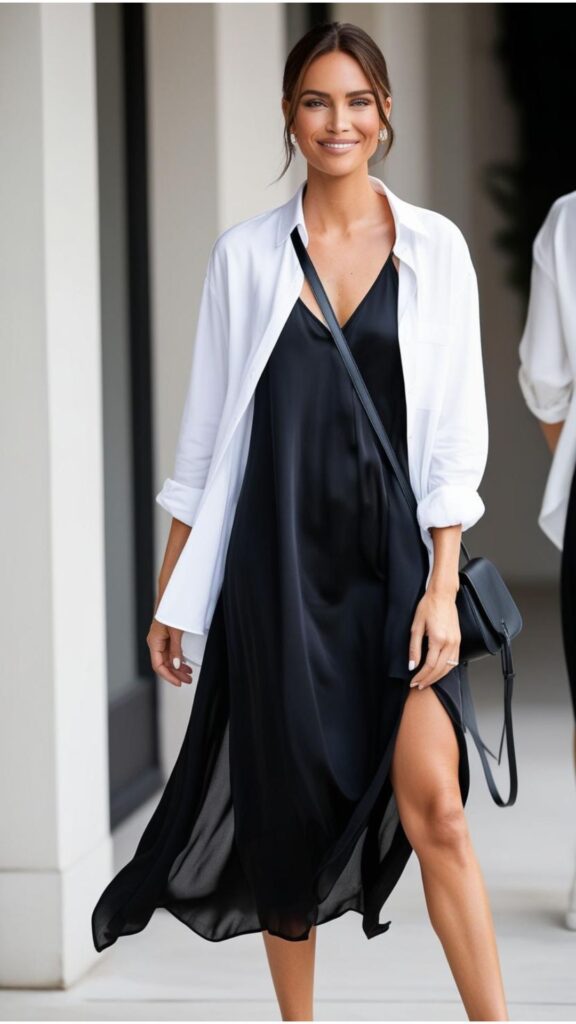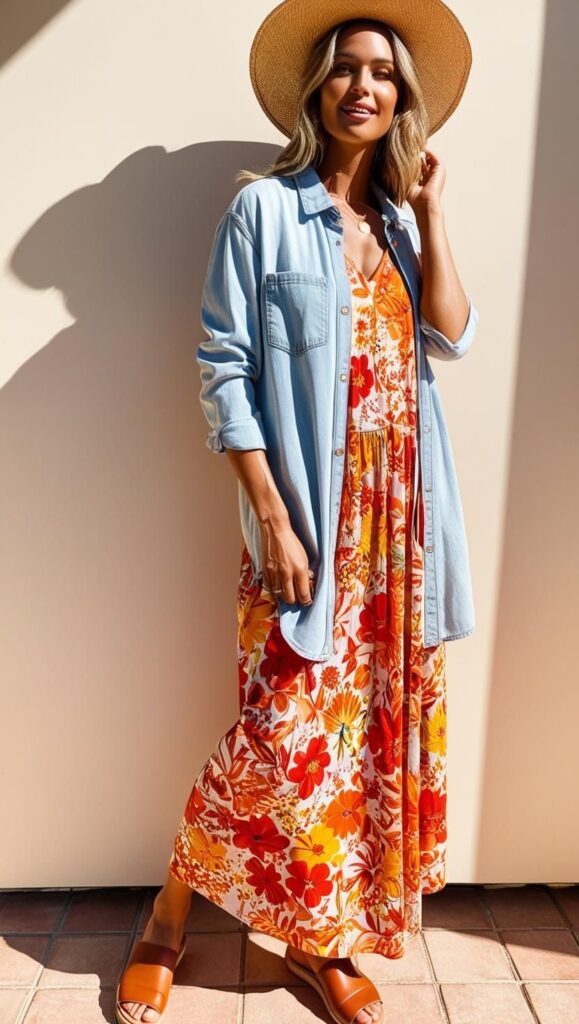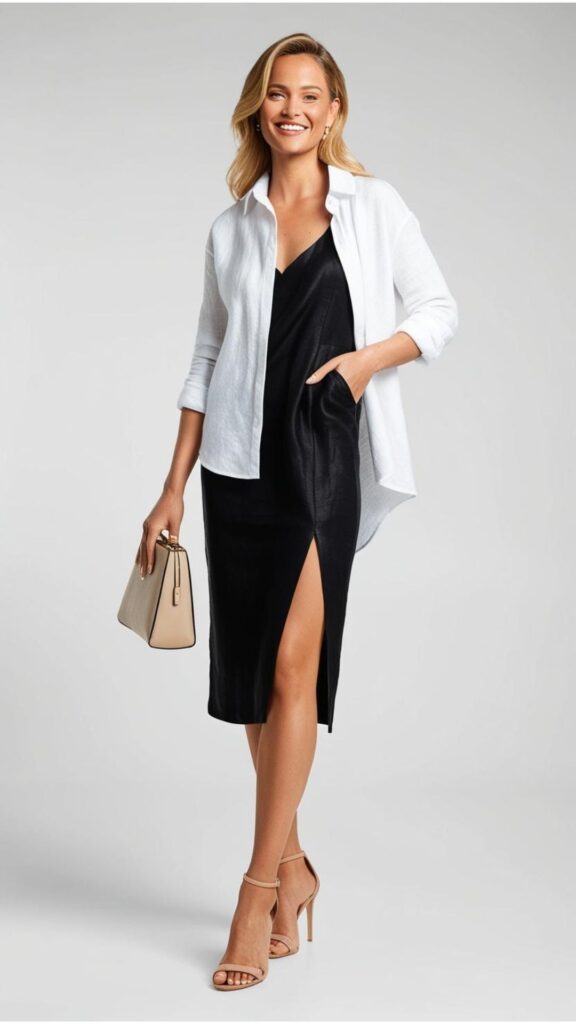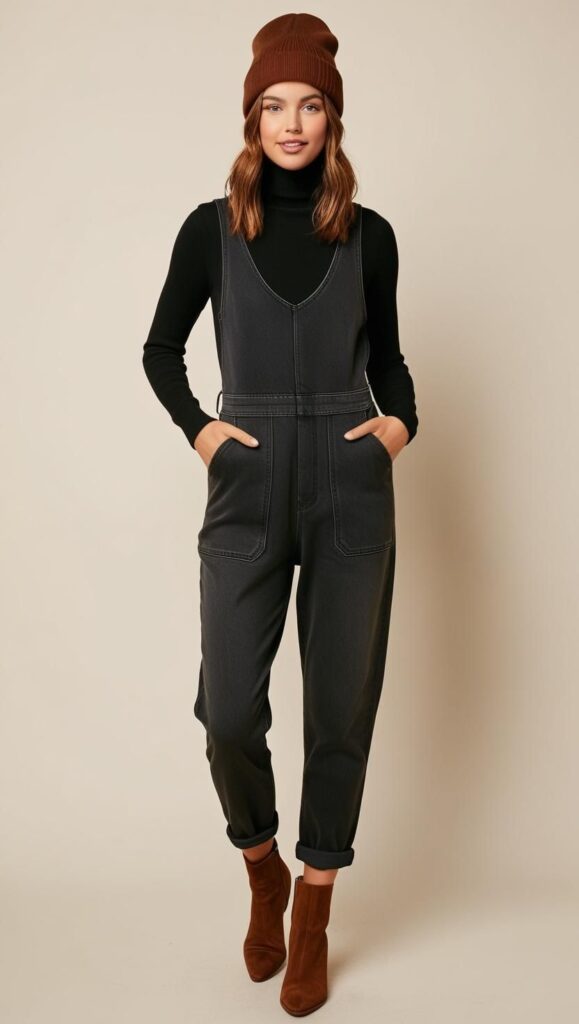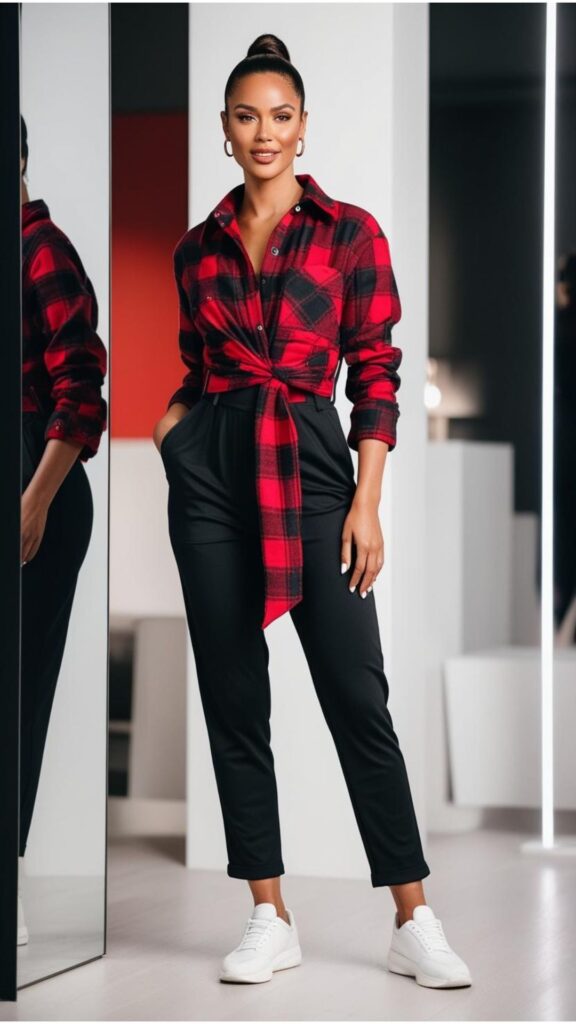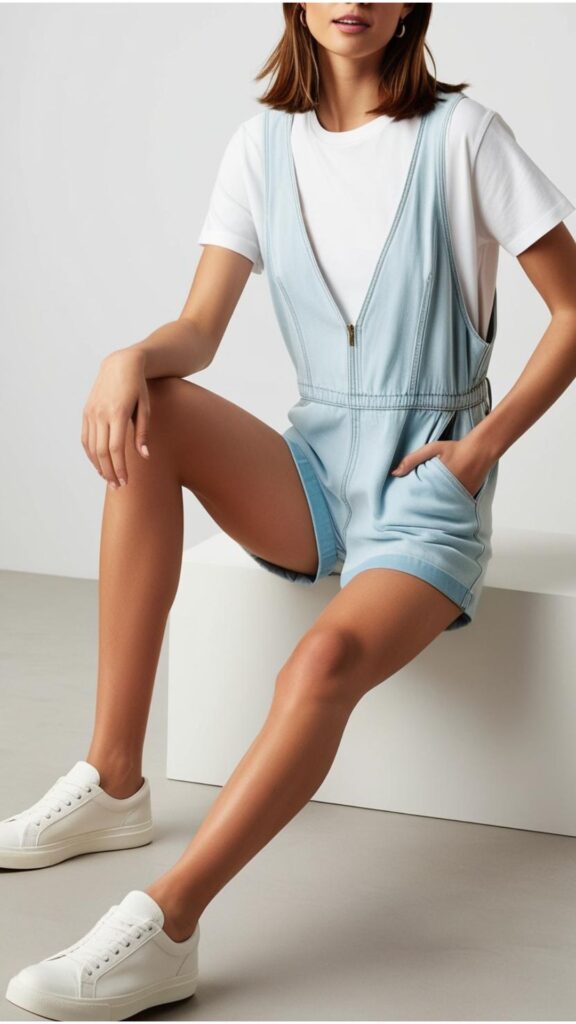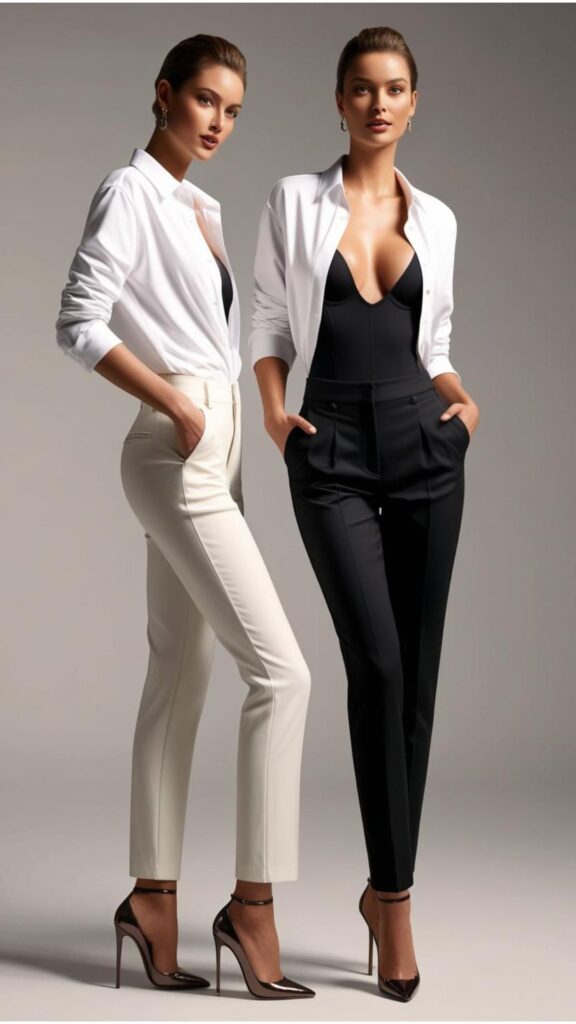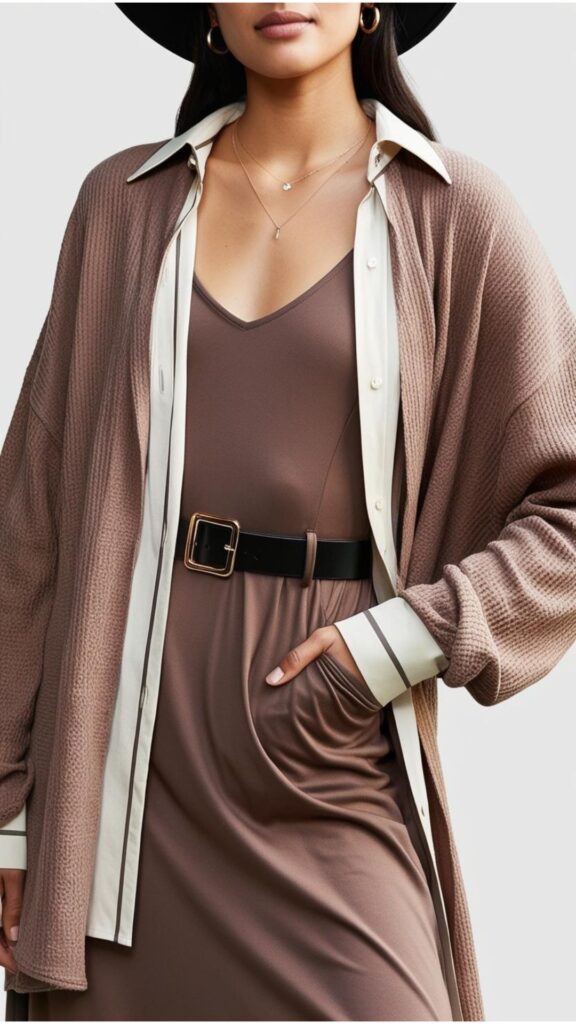Layering a shirt with a one-piece garment, whether it’s a dress, jumpsuit, or even a swimsuit, is a fantastic way to add versatility and dimension to your wardrobe. This technique allows you to transform your favorite one-pieces into fresh and exciting outfits suitable for various occasions and seasons. This guide will delve into the art of how to style a one piece with a shirt, offering creative ideas, practical tips, and inspiring visuals to help you master this layering technique.
Choosing the Right Shirt and One Piece
The foundation of a successful layered look lies in selecting the right shirt and one-piece combination.
- Consider the Occasion: For a casual look, pair a t-shirt with a denim jumpsuit or a flowy maxi dress. For a more polished ensemble, opt for a button-down shirt with a tailored jumpsuit or a slip dress.
- Fabric and Texture: Play with contrasting fabrics and textures to create visual interest. Pair a silk slip dress with a chunky knit cardigan or a denim jumpsuit with a chambray shirt.
- Color Coordination: Choose colors that complement or contrast with each other. A neutral shirt can be paired with a bold one-piece, or you can create a monochromatic look with a shirt and one-piece in similar shades.
- Proportions: Balance the proportions of your outfit by pairing a loose-fitting shirt with a more fitted one-piece, or vice versa.
How to Style a One Piece Dress with a Shirt
One-piece dresses offer endless styling possibilities when layered with shirts.
Shirt Under Dress: Wear a button-down shirt or a turtleneck under a slip dress or a sundress for a preppy or layered look. This is a great way to add warmth during colder months or to create a more modest outfit.
Shirt Over Dress: Tie a shirt around your waist or wear it open over a dress for a casual and relaxed look. This works well with maxi dresses, t-shirt dresses, and denim dresses.
Shirt as a Layer: Use a shirt as a light layer over a dress for added warmth or to create a more polished look.
How to Style a One Piece Jumpsuit with a Shirt
Layering a shirt with a jumpsuit adds versatility and dimension to your outfit.
Shirt Under Jumpsuit: Wear a fitted t-shirt or a turtleneck under a jumpsuit for a layered look. This works well with jumpsuits that have a deeper neckline or wider straps.
Shirt Over Jumpsuit: For a more casual look, tie a shirt around your waist or wear it open over your jumpsuit.
Shirt as an Accessory: Use a shirt as an accessory by tying it around your shoulders or neck for a pop of color or pattern.
How to Style a One Piece Swimsuit with a Shirt
Transform your swimsuit into a stylish outfit by layering it with a shirt.
Shirt Over Swimsuit: Wear a button-down shirt, a t-shirt, or a tunic over your swimsuit for a casual beach or poolside look.
Shirt Tied Around Waist: Tie a shirt around your waist for a relaxed and effortless look.
Shirt as a Cover-up: Use a long shirt as a cover-up for your swimsuit.
How to Style a One Piece Shirt
One-piece shirts, such as rompers and bodysuits, can also be layered with shirts for a more dynamic look.
Romper with a T-Shirt: Layer a t-shirt under a romper for a casual and comfortable outfit.
Bodysuit with a Button-Down Shirt: Wear a button-down shirt over a bodysuit for a more polished look.
Additional Tips for Styling a One piece with a shirt
- Accessorize: Accessories can elevate your layered look. Add a belt, jewelry, a hat, or a scarf to complete your outfit.
- Play with Proportions: Balance the proportions of your outfit by pairing a loose-fitting shirt with a more fitted one-piece, or vice versa.
- Consider the Season: Adapt your layering choices to the season. In cooler months, opt for warmer fabrics and layers. In warmer months, choose lightweight fabrics and lighter layers.
- Experiment: Don’t be afraid to experiment with different shirt and one-piece combinations to find what works best for you and your personal style.
By mastering the art of layering a shirt with a one-piece, you can create versatile and stylish outfits for any occasion. Whether you’re aiming for a casual, dressy, or seasonal look, this technique allows you to maximize your wardrobe and express your unique fashion sense.

